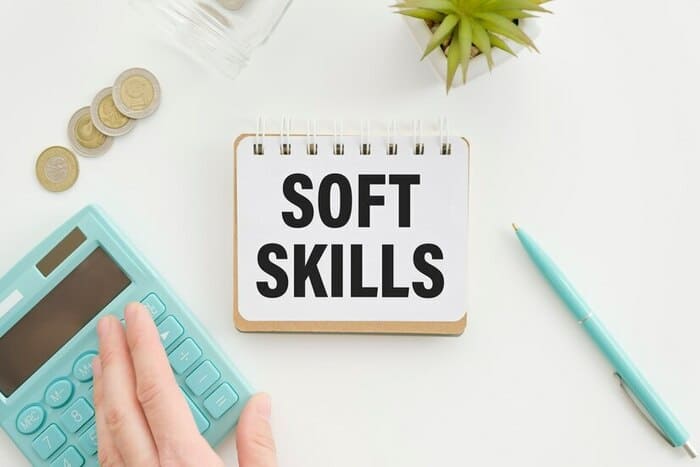
Soft Skills- The missing Curriculum
Soft Skills have attained prime importance in a technology-driven
society. Whether education or industry, much value is placed on human skills.
People in all walks of life now talk of attitude, communication, team synergy,
leadership, creativity, and lateral thinking ubiquitous for a progressive life.
Before the 1990s, scalable intelligence was considered the only factor in
achieving success in life; however, with time, performance indicators revealed
the role of human capital in productivity, competitiveness, and social
development. Human capital in individuals exhibits how the workforce applies
their skills, knowledge and insight in solving problems and opening avenues for
further development.
Be it soft skills, people skills or human skills; these terms
are used interchangeably when it comes to defining individual intangible
assets. Though covert, soft skills are manifested in human behaviour. How do we
communicate, what approach do we follow, do we work in tandem, what is the
mindset we carry, and many more similar situations unravel our inside world and
thinking of ours? Our behaviour is very lucidly brought out either as a
reaction or a response to any of the instances mentioned here. At the
workplace, the employees are required to be more creative under high-pressure
situations. Studies have proved that people get stuck in middle management and
senior-level due to the lack of soft skills, which impede their ability to take
over leadership and strategic roles. Soft skills, the 21st-century skills,
enable employees to interpret the situation and make a decision, considering
its impact on the future. It is not enough to be technically sound, but working
with others in synergy is vital to an individual’s growth.
To keep pace with changing work environment, systems and
processes, it is imperative to adapt to the requisite skills set to outperform
others in a competitive and fast-moving global culture. The companies are
willing to hire a workforce which knows how to get along and work harmoniously
with people. Big giants like Google, Microsoft, Apple, Dell, etc., may get
highly technical rated people, but they look for those who display a wide array
of soft skills in their career/professional graph. The company’s productivity
and growth now rest on its people's ability to strategize and bring results
while walking on the untrodden development paths.
If found missing, it seems pertinent to look for ways to
build soft skills among the employees. Soft skills are intangible; they cannot
be developed like hard or technical skills. Hard skills are scalable,
time-driven and result-oriented. The academic scores hint at a person's
technical knowledge, but how they would behave at the workplace in challenging
or tough situations is unknown.
Despite many hullabaloos, soft skills do not see a place in
the mainstream education system. The courses and programmes across institutions
stress delivering technical know-how, thus undermining the role of soft skills
in projecting the hard skills in the right manner. The graduates may have the
technical understanding to deal with machines, tools, data, etc., but how to
coordinate with people is missing. This not only hampers productivity but the
performance of the employees either slows down or stagnates at the workplace. The
education system still has more rote learning – just mugging up the concepts
and translating them into scores. The comprehension and application of
knowledge seem daunting tasks for the learners. They resort to easy and fast
methods of showcasing their ability to secure grades and, after that, try to seek
admissions to premium schools. In this gamut of activities, the learners may
not be solely responsible for widening the chasm between academia and the
industry.
Nonetheless, there is a dire need to embed or develop a
curriculum keeping the significance of soft skills in a graduate's life and
professional career. The policymakers, course designers and the industry have
to shoulder the responsibility of identifying the skills and the knowledge
required to become employable and sustain and perform well in the business
arena. Over time, soft skills or people skills have achieved major significance
in becoming industry or work-ready. Whether it is entrepreneurship or company
placement, the present workplace demands many skills and soft skills to achieve
prominence. From identifying oneself and then communicating with others to
leading teams and yielding results, everything depends on an individual's soft
skills, behavioural skills, people skills, human skills, etc. The human
connection is at the core of all business exchanges. It is the bottom of the
pyramid on which further expansion rests.
Looking at the gravity of soft skills, the educators may
strategize their programmes to equip the students to develop communication
styles adaptable to situations, build positive interpersonal relations and
finally work in collaboration with others for a better and sustainable future.
It is better if soft skills are intertwined with the school-level syllabus.
Beginning with values and ethics and developing manners and etiquette fit for
the formal and informal environment could be stressed. Gradually, working on
communication for different situations and understanding the power of
togetherness are some traits and skills built at a later stage of school life.
However, a term called 'life skills' forms a part of the study prescribed by
education boards/councils at school education, but the same is taught like any
other academic subject. The life skills term must change and be treated as a
training component with its real-time application. It might be that it then
justifies its existence.
Upon entering a higher level of knowledge, soft skills,
irrespective of any course/programme, should find a place in the curriculum.
From 'know thyself' to accumulating skills required to work as an independent
contributor and team member, every graduate adds to an array of fine employable
resources. The journey of generating a finished product begins from I – YOU –
THEY. What was left untreated and undeveloped is taken care of at graduation.
We had a GURUKUL system of education which was responsible for the holistic
development of a child. Unfortunately, we have lost a complete grip over it and
now chasing the same under the garb of soft skills, etc. Invasions, synthesis
and mergers have brought a paradigm shift in every aspect of life. We are
keenly interested in going for a make-over for a healthy and humanly tomorrow
where soft skills can align many things.
Any course/programme of soft skills needs to be designed
carefully considering all the stakeholders. The institutions should inform the
learners about the objective, content, delivery and benefits of such a
programme. Besides learners, parents and industry need to be involved for their
valuable input. This initiative would not only lessen the gap between industry
and academia but also help develop the requisites skills set matching the need
of the business world.
Everything is to be carried out via trained, qualified, and
experienced trainers/faculty members, from developing the course curriculum to
the training of the graduates. Certainly, the efforts aligned well will yield
positive and desired outcomes. The authorities of educational institutions need
to be upfront about soft skills training of their curious and budding learners
and make sincere efforts to equip passing out graduates with the essential soft
skills of the real world.
As a word of caution, soft skills are not to be misunderstood
with English language learning, personality development, spoken English, and
other similar nomenclatures. Soft skills are now very elemental skills to lead
a humanistic and holistic life keeping in view the co-existence of other
entities.



